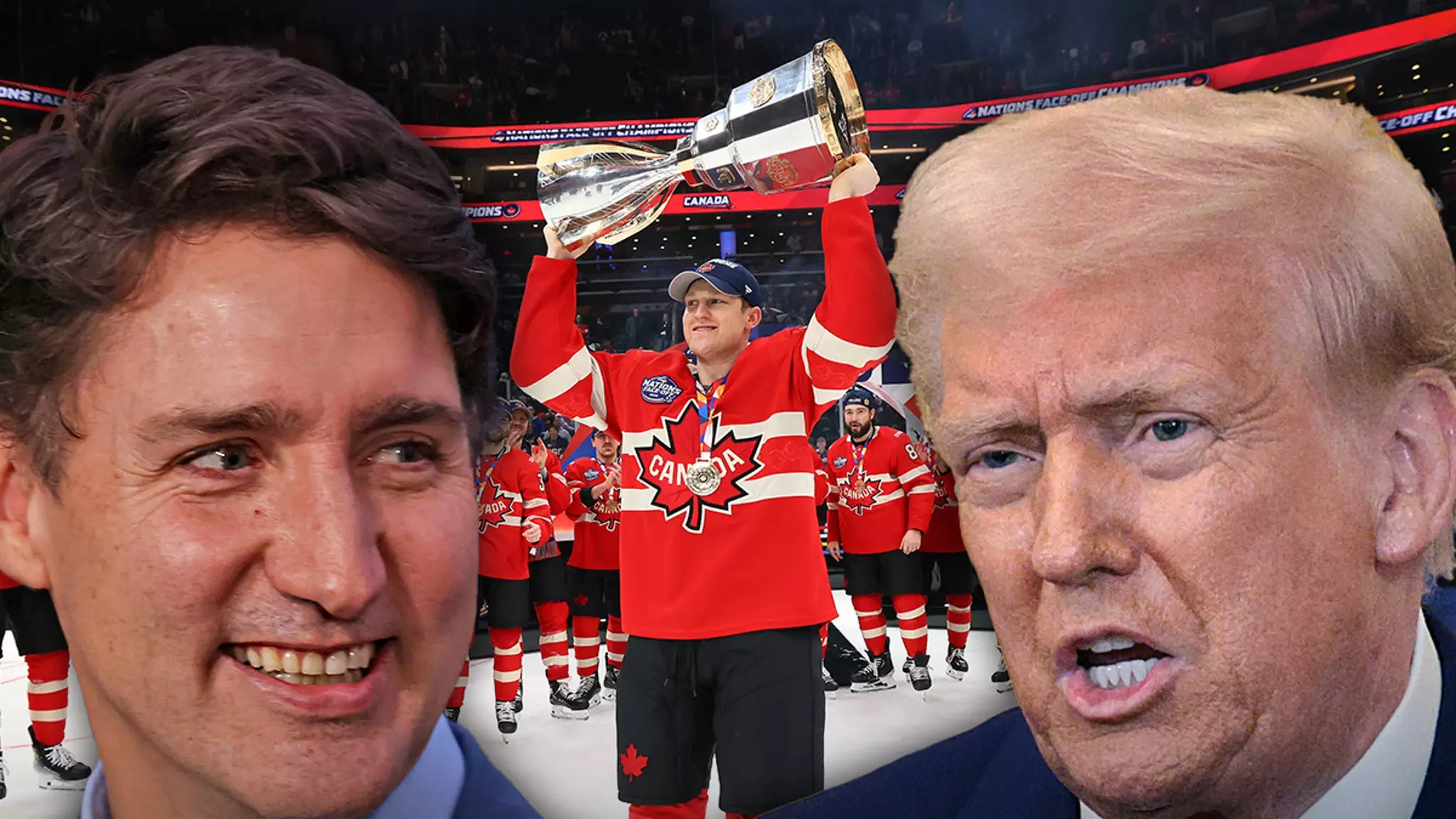The recent 2025 4 Nations Face-Off tournament brought forth not only fierce athletic competition but also an intriguing glimpse into the intricate relationship between Canada and the United States. The decisive match, which ended dramatically in favor of Canada courtesy of a stunning overtime goal from Connor McDavid, became a canvas upon which political tensions were painted. Prime Minister Justin Trudeau’s triumphal post about the victory, coupled with jabs at former President Donald Trump’s rhetoric regarding Canada, set a tone of rivalry that transcended the ice rink.
Could this tournament be seen merely as a display of sportsmanship? Given the context of rising tensions marked by political exchanges, it was clear that the stakes were higher than just winning a trophy. In Montreal, the atmosphere was electric; fans booed the American national anthem, setting a combative stage even before the puck dropped. This initial disrespect sparked feelings of hostility, leading to several fights between players within mere seconds of the starting whistle. This escalation of passion was emblematic of the complex interplay of sports and politics, where the competition morphed into a battleground for national pride.
In a moment of poetic justice, American fans at the Boston TD Garden mirrored this hostility by booing “O Canada” in return. The game itself was as thrilling as expected, featuring a rollercoaster of scoring. Canada struck first, but the U.S. surged back, emphasizing the passionate investment both teams and their supporters had in the rivalry. The atmosphere was electrifying, bordering on the intensity usually reserved for the Stanley Cup Playoffs. Each goal seemed to reflect not just points on a scoreboard but the national sentiments, heated debates, and aspirations of their respective countries.
The spectacle of the tournament revealed a unique aspect of international sports in this era of national discourse. Canadian player Nathan MacKinnon’s observations about how the rivalry captured the imagination of fans across the continent underscore the changing landscape of sports. While the competition intensifies, so does its media coverage, drawing attention to issues beyond the rink and allowing for a broader dialogue on national identity and inter-country dynamics.
Despite the heartbreak, the U.S. team now faces a waiting game before they can challenge their rivals once more. The upcoming Winter Olympics will provide another platform for these nations to clash, and undoubtedly, both sides will feel the weight of expectations and emotions. The significance of their matchups is amplified by current political climate, suggesting that every goal scored may echo the sentiments of the moment far beyond just the final tally on the scoreboard. As the world looks ahead to the Olympic stage, it remains to be seen how these two hockey powerhouses will navigate their intertwined legacies of rivalry and camaraderie.

